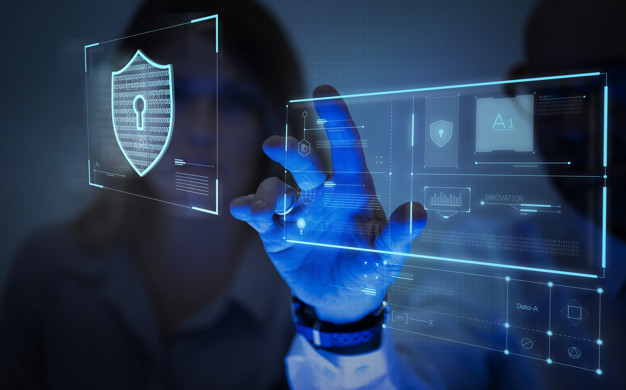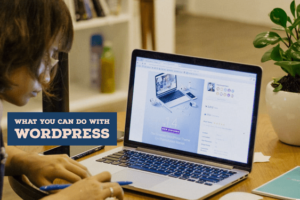
Privacy is a big deal when it comes to the internet. It’s one of the reasons why many people take measures to protect their privacy. This article will outline some of the most common ways that people try to keep their online privacy.
5 Simple Steps For Safer Online Browsing
Keeping your online privacy safe is important. Here are 5 simple steps to help you stay safe:
- When connecting to public Wi-Fi networks, always utilize a VPN. A VPN encrypts your traffic and helps keep your online activity private.
- To make strong, one-of-a-kind passwords for all of your accounts, use a password manager.
- Don’t share personal information such as addresses, birth dates, or social security numbers on social media sites.
- Avoid clicking on links in unexpected messages or emails. Often, these are malicious links that will take you to phishing websites designed to steal your personal information or infect your computer with malware.
- Be suspicious of anything that asks for personal information before granting access to a website or app.
The Benefits Of Being Private Online.
The benefits of privacy online are clear. Individuals can be more themselves, free from the scrutiny of others. They can also keep their personal information private and avoid potential embarrassment. There are many reasons to choose privacy when online, and it’s a wise investment for anyone who wants to stay safe and confident online. There are several key benefits, including:
- You can control your own information. When you’re private online, no one can see what you’re doing or who you’re talking to. This gives you more control over your privacy and safety online.
- You can stay anonymous. When you’re private online, no one can track your movements or find out who you are. This protects your privacy and anonymity, which can be important in some cases.
- How can you stay safe online? When you’re private online, it’s easier to stay safe while using the internet. This is because no one knows what sites or posts you’ll visit, and therefore there’s less chance of being attacked or scams perpetrated on you.
- Privacy allows individuals to be themselves. When people are open about their lives online, they often feel compelled to reveal everything about themselves. This can be uncomfortable and sometimes even embarrassing. With privacy, users can control who knows what about them and how that information is used.
- Privacy protects personal information. When people share too much personal information online, they put themselves at risk of identity theft and other malicious acts.
Also Read: How To Change Server In Free Fire With Or Without VPN
Tips For Better Online Security And Protecting Yourself From Hackers.
Do you worry about the security of the data you provide online? Do you understand how to defend yourself against hackers? Here are some tips for better online security and protecting yourself from hackers:
- Use a secure web browser. Make sure your browser is updated with the latest security patches and antivirus software. Chrome, Firefox, and Internet Explorer all have great security features that can help protect your data from being stolen or hacked.
- Disable pop-ups and adware. Many malware infections start when ads on websites try to convince you to install unwanted programs. Disabling pop-ups and adware can help reduce the chances that you will be infected by these types of threats.
- Don’t share personal information. Never give out personal information such as your birthdate or login credentials to someone you don’t know well.
How To Protect Yourself When Using The Internet.
Everyone knows that using the internet is a great way to research and stay up-to-date on current events. However, with so many people using the internet at once, it can be difficult to keep your personal information safe. Here are some tips to help protect yourself online:
- Use a VPN: A virtual private network protects your data by encrypting it and sending it through a separate server. This can help hide your location and keep your traffic anonymous. We recommended ExpressVPN because the company offers ExpressVPN Black Friday Deal with lightning-fast speed and so many amazing features that’s why it is the best VPN for Windows 7 64-bit.
- Use encryption: When you send or receive data over the internet, make sure to use encryption tools like HTTPS (HTTP Secure) or SSH (Secure Shell). These technologies encrypt your data so that only the intended recipient can understand it.
- Install security software: Regularly install security software on your computer and devices, like antivirus software and firewall programs, to keep them safe from cyberattacks.
- Always use a secure password. Make sure it is different from any other passwords you use and that it is not easily guessed.
- Don’t share personal information like your social security number or address online. If you need to share this type of information, make sure you do so in a secure way, such as through a private message on social media or email.
- Avoid clicking on suspicious links or attachments that you don’t know how to inspect first. Whatever seems too good to be true most definitely is!
Conclusion
We recommend that all readers take the time to learn about online privacy and protect themselves by using common sense precautions, like never sharing personal information or passwords, using a unique password for every website, and never clicking on unsolicited links.
You might also like our TUTEZONE section which contains exclusive tutorials on how you can make your life simpler using technology.




